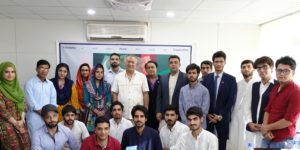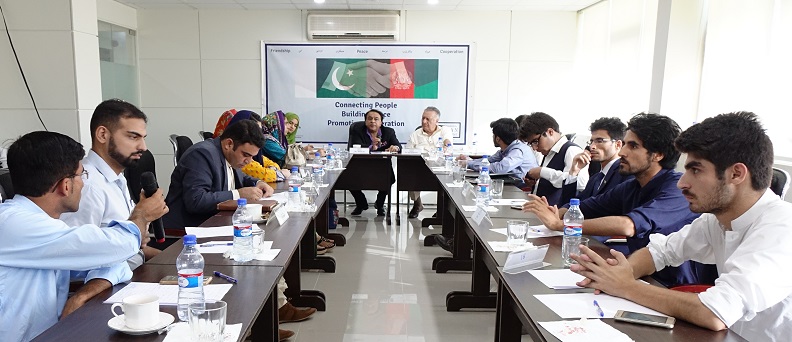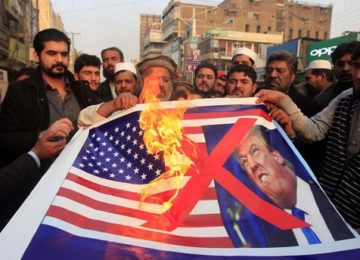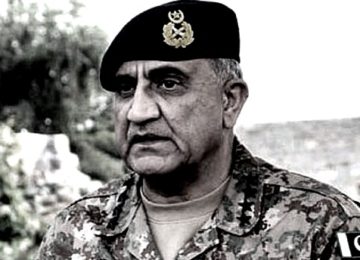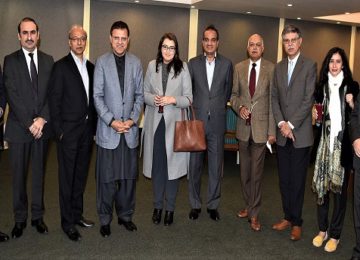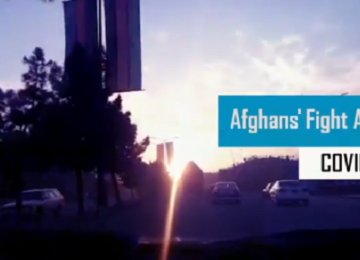The Center for Research and Security Studies (CRSS) conducted its third Pak-Afghan Youth Dialogue under its Afghan Studies Center initiative on Monday, August 21, 2017, in Islamabad, as part of its ongoing series of monthly dialogues aimed at enhancing people to people contact between Pakistan and Afghanistan. The theme of the dialogue highlighted culture as a common ground for cooperation between the people of both countries which was attended by 17 participants – seven Afghans and ten Pakistanis, most of whom were students enrolled in higher education programs or young working professionals. Some of the participants had travelled from Bannu, Peshawar, Mardan and other distant areas to participate in the dialogue. Qazi Humayun, former Ambassador to Turkey and Afghanistan, was invited as the chief guest while Mr. Aized Ali, CRSS Project Director Beyond Boundaries, moderated the discussion.
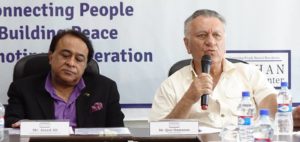
Mr. Qazi Humayun welcomed the participants to the dialogue in his opening remarks and expressed his emphasis on the role of culture in connecting people beyond boundaries. Referring to historical engagements between the two neighbors, Mr. Humayun elucidated that cultural interaction has been a centuries-old factor in the relations between the people that resided in present day Pakistan and Afghanistan since the time when there was no air travel and Afghanistan was the only gateway to Central Asia for India and vice versa. Furthermore, he explicated, that while refugees in most countries remain confined to refugee camps, Pakistan did not place any restrictions on the movement of the 1.5 million Afghan refugees that have been living in Pakistan. As a result, Afghan culture has blended into many customs in the Pakistani society. He also commended the efforts of CRSS on maximizing positive interactions between the youth of both countries to find commonalities and push for peaceful narratives.
Mr. Aized Ali further introduced the participants to CRSS’ track 1.5/2 efforts to contribute to the improvement of relations between the two neighbors under its project Beyond Boundaries and apprised them with the purpose of Afghan Studies Center which, he explained, had been a product of the track 1.5/2 meetings held over the last two years by CRSS and its Afghan counterparts.
The debate began with participants highlighting the commonalities that exist in the cultures, religious practices and norms of Afghanistan and Pakistan and calling them as binding forces for normalization of their bilateral relations. The participants referred to common ethnic groups, such as Pashtoons and Hazaras, that live in large communities on both sides to highlight common values and customs on many fronts. Participants also discussed the commonness of Afghan delicacies so prevalently enjoyed in Pakistan such as Kabli Pulao, Mantu, Kahwa, Kebabs, in addition to common attire such as Shalwar Kameez, and others. A participant recalled that one of the dances that were performed at the Wagah border on Pakistan’s Independence Day last week (August 14) was from Afghan origin, which highlights the extent to which Afghan music, attire, dances and delicacies have become infused in Pakistan’s own customs.
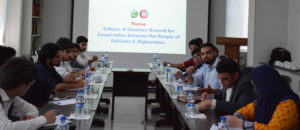
A participant was of the view that the youth need not engage in futile heated political debates which would only add to the bitterness and misunderstandings in the common people and rather connect on a human level with each other, particularly by utilizing common interests such as music and sports.
Besides direct cultural exchanges, participants also emphasized on the need for media cooperation to promote culture between the two countries. A participant, for example, shared her experience of reading “A Thousand Splendid Suns”, which is written by an Afghan author and depicts the Afghan culture, stating that it opened her eyes to the Afghan society which she otherwise could not have discovered due to the limited people to people contact between the two nations. Thus, the participants highlighted the need for more literary and media exchanges between the two neighbors for better understanding, cooperation and as trust-building measures.
The debate ended with a video shared with the Afghan Studies Center by an Afghan member, Ayaz, who had actively been participating in the dialogue to play his role of improving perceptions for a peaceful future between the two countries. At the conclusion, Ayaz was nominated as Pak-Afghan Youth Ambassador and awarded a shield by Ambassador Qazi Humayun. In the previous dialogue, Ms. Ayesha Zakir from Pakistan was nominated as the Youth Ambassador.
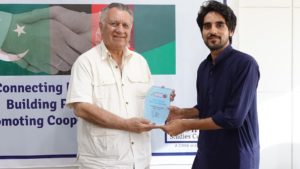
These sessions are aimed at removing the existing mistrust and gap between the youth of Pakistan and Afghanistan and providing them with a platform where they can interact and join hands to become leaders of change and messengers of peace and cooperation in the region.
